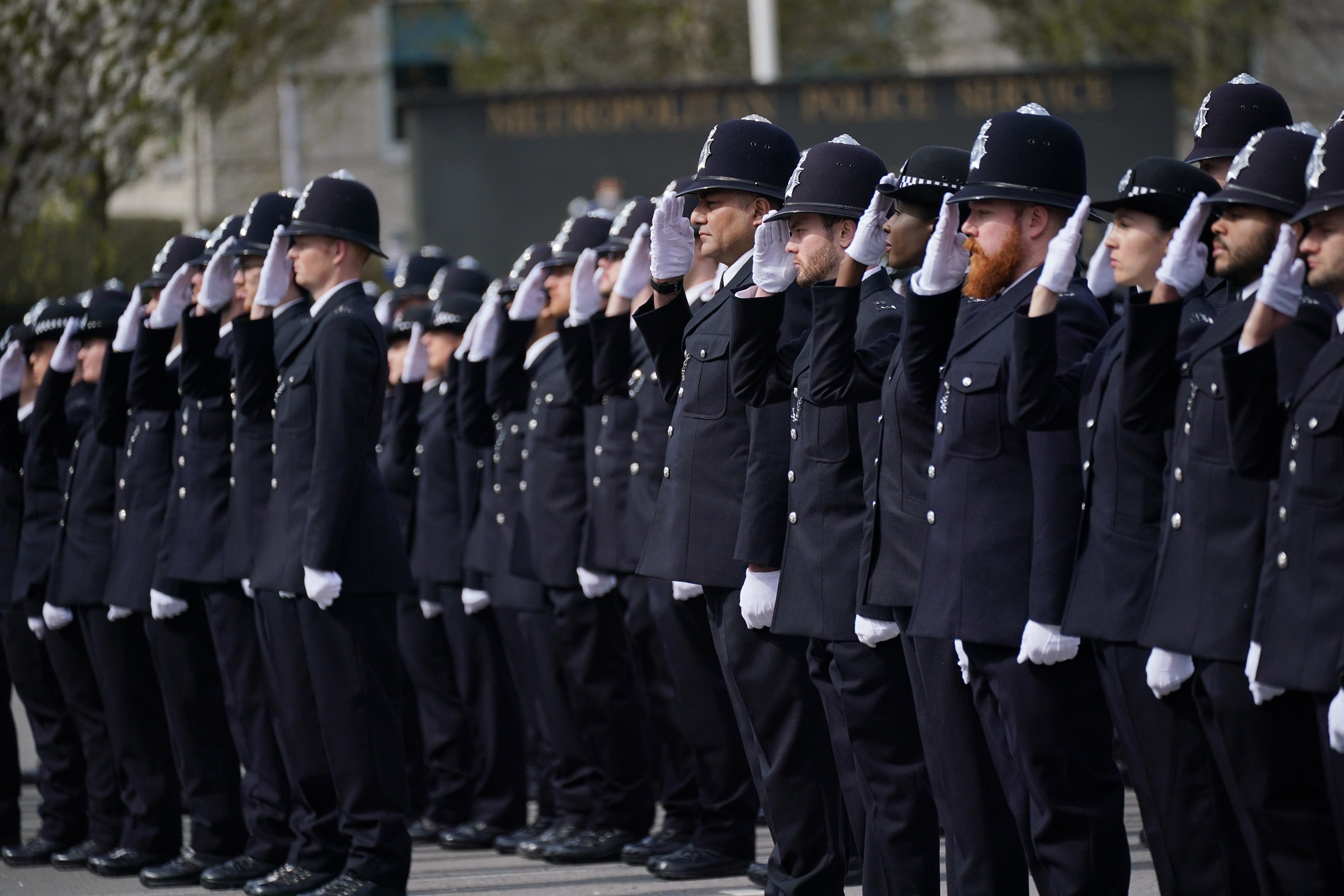Met Police chief admits it may not be ‘possible or wise’ to meet Boris Johnson’s recruitment target
Former prime minister’s pledge to get 20,000 extra officers on streets within three years could fail

Your support helps us to tell the story
From reproductive rights to climate change to Big Tech, The Independent is on the ground when the story is developing. Whether it's investigating the financials of Elon Musk's pro-Trump PAC or producing our latest documentary, 'The A Word', which shines a light on the American women fighting for reproductive rights, we know how important it is to parse out the facts from the messaging.
At such a critical moment in US history, we need reporters on the ground. Your donation allows us to keep sending journalists to speak to both sides of the story.
The Independent is trusted by Americans across the entire political spectrum. And unlike many other quality news outlets, we choose not to lock Americans out of our reporting and analysis with paywalls. We believe quality journalism should be available to everyone, paid for by those who can afford it.
Your support makes all the difference.It may not be “possible or wise” for the Metropolitan Police to hit its target in Boris Johnson’s drive to recruit 20,000 extra officers, the new commissioner has said.
Britain’s largest force was assigned over 4,500 constables as part of the uplift across England and Wales, which was launched by the former prime minister in 2019 and is due to end in March.
Scotland Yard has fallen far behind with recruitment, getting under 3,000 extra officers by June. It means that 1,600 officers would have to be recruited, on top of replacing those leaving the force, within months to hit its target.
When questioned on whether it would be met, Sir Mark Rowley sounded a note of caution at the London Assembly police and crime committee on Wednesday.
“I’m doing a review of that at the moment and looking at a, can we recruit that many and b, can we do it with the quality that’s required, and bring them into the organisation in a way that’s not destabilising,” he said.
“Just recruiting headlong without making sure you’re bringing the right people in and giving them the best start and the best training … I’m concerned about whether it’s possible or wise to go at exactly that speed.”
In a letter marking her departure as home secretary last month, Priti Patel called for the target to be met.
She told Sir Mark: “I look to you to provide strategic leadership to ensure that your force has recruited the full 4,557 additional officers it has been allocated by the end of March 2023.
“Maintaining the Metropolitan Police allocation of additional officers into the forthcoming years is central to restoring the trust and confidence, so the best and brightest need to be encouraged to join up.”
Scotland Yard’s allocation in the uplift was so large that if it does not meet it, Mr Johnson’s 2019 vow to put 20,000 extra police officers on the streets within three years could fail.
Official figures released in July showed that an average of 690 officers a month would have to be recruited across England and Wales to hit the target.
The government insisted the programme was on track, but the final leg is being made harder by rapidly increasing numbers of officers quitting their jobs through voluntary redundancy, and hopes hinge on a recruitment surge this autumn.
An officer speaking to The Independent anonymously likened the situation to a “bucket with holes in the bottom”, as forces work to get more and more new recruits through the door to replace the experienced officers departing.
Up to a third of all police officers in England and Wales will be inexperienced constables still in their probation period if all 20,000 are recruited.
A watchdog warned that the uplift programme had created a “heightened danger that people unsuited to policing may get through” because of the speed of recruitment required.
Because the government pledged that the new officers would be “additional” to existing numbers, more than 50,000 had to be recruited over three years to cover for resignations and retirement.
Parliament’s Public Accounts Committee has warned that hitting the target would be a “challenge” in the final months leading up to the government’s self-imposed deadline, because of more jobs opening up in the wider labour market and policing being made less attractive by declining public trust and confidence.
At a conference earlier this year, several officers told the former home secretary that they were struggling to live on their salaries and were considering leaving policing for better-paid jobs in other sectors.
Following a two-year pay freeze that caused a bitter row between police bodies and the Home Office, the government announced a 5 per cent overall rise earlier this year.
But the Police Federation, which represents rank-and-file officers, said the increase was still below inflation and officers who suffered a “20 per cent real terms pay cut since 2010” are now being hit by the cost of living crisis.
The number of police officers in England and Wales has not yet recovered to the totals before the coalition government came into power in 2010 and started making swingeing cuts.



Join our commenting forum
Join thought-provoking conversations, follow other Independent readers and see their replies
Comments